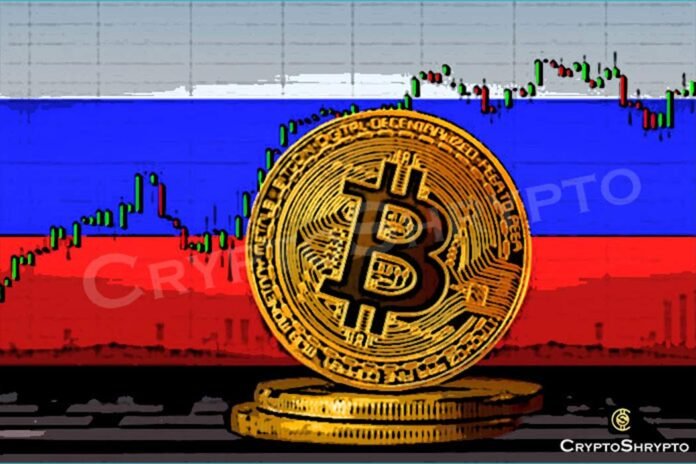Russian denominated crypto purchasing and trading on key exchanges has halted, according to data from blockchain-analysis firms, contradicting notions that the country will move to digital assets so that they can avoid sanctions.
When Bitcoin rose over 15% last week, some industry analysts blamed it on Russians buying cryptocurrencies in the case of tightening economic sanctions. This notion appears to be inaccurate, as data from Chainalysis shows that the amount of ruble-denominated crypto trade was just $34.1 million on March 3, less than half of On Feb. 24, which hit a new high of $70.7 million.
Citigroup analyst Alexander Saunders says “So far, Russian volumes have been fairly low, implying that the price motion is due to traders’ positions.” for a predicted rise in demand from Russia, .”Sanction-fueled crypto purchases will demand themselves”.
Despite the fact that experts dismiss the suggestion that crypto may be used to help Russia avoid economic sanctions, the United States and the European Union continue to expand their regulatory authority over digital assets.
New York recently enhanced its blockchain surveillance capabilities in order to further restrict the usage of cryptocurrencies or digital assets to assist Russian goals.
On February 27, New York Governor Kathy Hochul delivered an executive order requiring state agencies to withdraw from Russian institutions and enterprises, as well as organisations that support them. She stated, “
“New York is pleased to be home to the country’s biggest Ukrainian population, and we will use our technology resources to safeguard our citizens and demonstrate to Russia that we will hold them accountable.”
Jake Chervinsky, the head of policy at the Blockchain Association in the United States, went so far as to label these concerns about cryptocurrency “completely false.”
Ari Redbord, the head of legal and government affairs at crypto crime investigator TRM Labs, echoed this sentiment, saying that it’s too late for crypto assets to provide enough liquidity for Russia, and that the public nature of blockchains is already a sufficient deterrent for those looking to avoid sanctions.
“Russia is unlikely to use crypto to replace the hundreds of billions of money that could be banned or frozen.”
Russian banks will be removed from the SWIFT cross-border network, according to the European Commission.
Many of the world’s biggest crypto exchanges have opted to blacklist sanctioned individuals and organisations in the wake of impending regulatory action from the international community. Binance, on the other hand, has declined to restrict the accounts of “harmless” Russian consumers.







